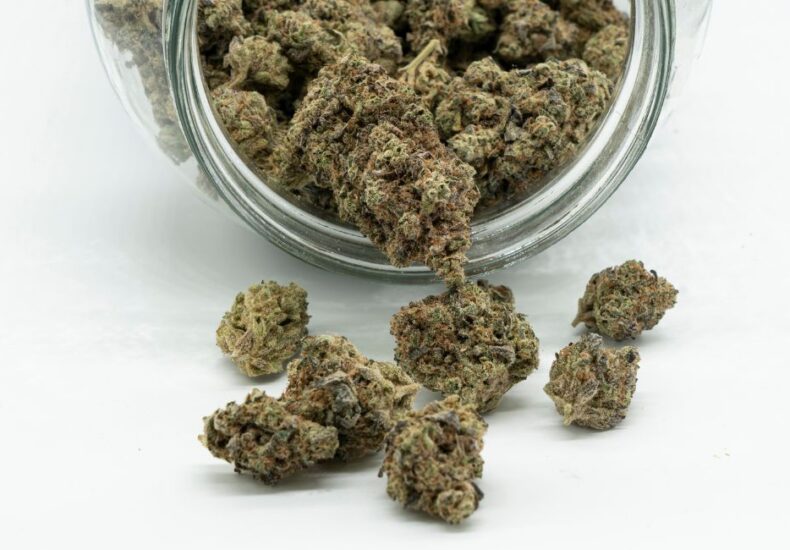
How THCa Flower and Inflammation Work Together
Understanding the Relationship Between THCa Flower and Inflammation
The exploration of cannabis and its components has gained significant traction in recent years. Among the many compounds found in cannabis, THCa (tetrahydrocannabinolic acid) has emerged as a subject of interest, particularly in its potential role in managing inflammation. This article delves into how THCa flower and inflammation interacts, providing insights into its mechanisms and potential benefits.
What is THCa?
THCa is a non-psychoactive cannabinoid found in raw and live cannabis plants. Unlike THC (tetrahydrocannabinol), which is known for its psychoactive effects, THCa does not produce a “high.” This compound is the precursor to THC and converts into THC when exposed to heat through a process called decarboxylation.
The Science Behind Inflammation
Inflammation is the body’s natural response to injury or infection. It involves the immune system releasing white blood cells and chemicals to protect the body from foreign invaders. While acute inflammation is beneficial, chronic inflammation can lead to various health issues, including arthritis, heart disease, and autoimmune disorders.
THCa’s Potential Anti-Inflammatory Properties
Research suggests that THCa may possess anti-inflammatory properties. This potential is attributed to its ability to interact with the body’s endocannabinoid system (ECS), which plays a crucial role in regulating immune responses and maintaining homeostasis.
- THCa may inhibit the production of pro-inflammatory cytokines, which are proteins that promote inflammation.
- It may also modulate the activity of immune cells, reducing their inflammatory response.
- THCa’s antioxidant properties may further contribute to its anti-inflammatory effects by neutralizing free radicals that can cause cellular damage.
Case Studies and Research Findings
Several studies have explored the potential of THCa in managing inflammation. A study published in the “Journal of Pharmacology and Experimental Therapeutics” found that THCa exhibited anti-inflammatory effects in animal models of inflammation. The study highlighted THCa’s ability to reduce inflammation markers and improve symptoms in these models.
Another research article in “Frontiers in Neurology” discussed the potential of THCa in neuroinflammatory conditions. The study suggested that THCa might offer neuroprotective benefits by reducing inflammation in the brain, which could be beneficial for conditions like multiple sclerosis and Alzheimer’s disease.
Real-World Applications and User Experiences
Beyond scientific studies, anecdotal evidence from users of THCa flower suggests potential benefits in managing inflammation-related symptoms. Many users report experiencing relief from pain and swelling associated with conditions like arthritis and fibromyalgia.
For instance, a survey conducted by a cannabis advocacy group found that a significant percentage of participants using THCa flower reported improvements in their inflammatory symptoms. These findings, while not scientifically rigorous, provide valuable insights into the potential real-world applications of THCa.
How to Use THCa Flower for Inflammation
THCa flower can be consumed in various ways to potentially manage inflammation:
- Raw Consumption: Consuming raw cannabis leaves or flowers in smoothies or salads preserves THCa in its natural form.
- Tinctures and Oils: THCa tinctures and oils offer a convenient way to incorporate THCa into daily routines.
- Topicals: THCa-infused creams and balms can be applied directly to inflamed areas for localized relief.
Considerations and Precautions
While THCa shows promise, it’s important to approach its use with caution. Consulting with a healthcare professional before incorporating THCa into a treatment plan is advisable, especially for individuals with pre-existing health conditions or those taking other medications.
Additionally, the legal status of THCa varies by region, so it’s essential to be aware of local regulations regarding its use and possession.
Conclusion
The potential of THCa flower in managing inflammation presents an exciting avenue for further research and exploration. While scientific studies and anecdotal evidence suggest promising anti-inflammatory properties, more research is needed to fully understand its mechanisms and efficacy. As interest in cannabis-based therapies continues to grow, THCa may emerge as a valuable tool in the quest for effective inflammation management.
- From Skepticism to Trust: How Goldco Reviews Transformed My Mind
- DIY Teeth Lightening: How to Attain a Spectacular Smile
- Just how to Maintain Your Bright Smile: Post-Whitening Treatment Essentials
- ** BPC 157 Peptide: A Comprehensive Guide to Its Advantages and Makes use of **.
- ** Opening the Recovery Possible: The Science Behind BPC 157 Peptide **.